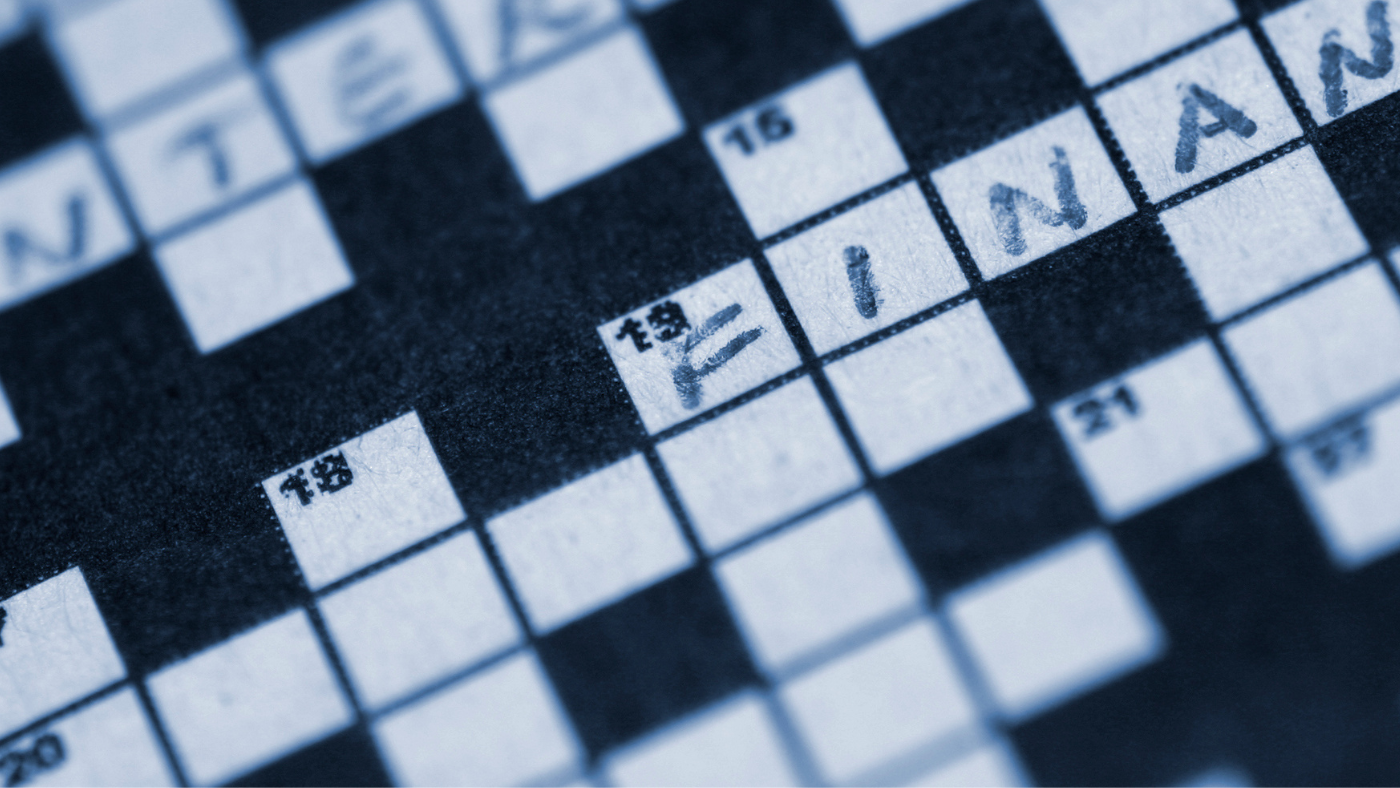China is loving the Trump presidency
"Your new president is exactly the leader for America we have been dreaming of — his need for attention and good press makes him weak"
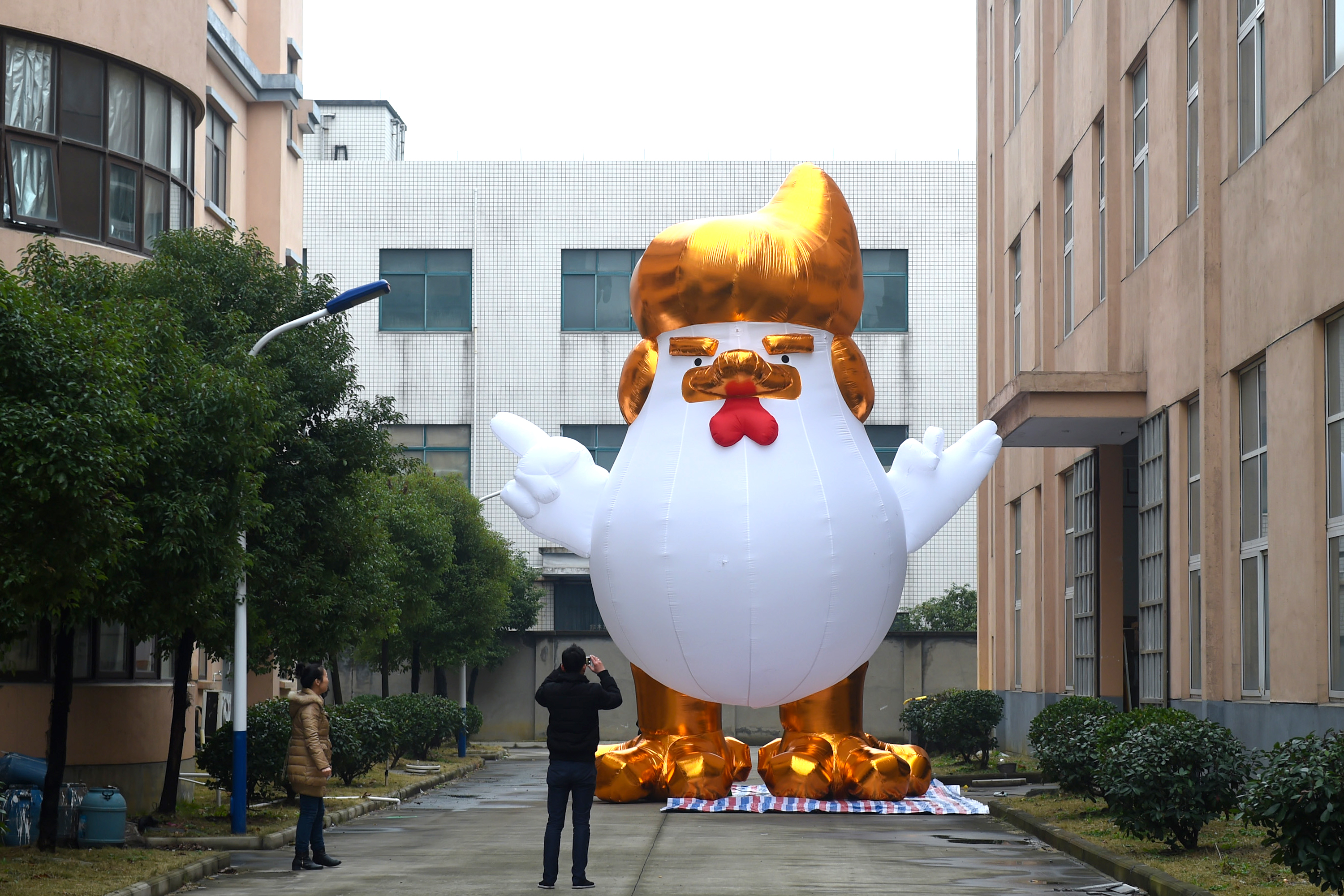

We may never really know if President Trump — or his campaign, or those in his inner circle — ever colluded with Russia. We also may never know if President Trump and his team tried to pressure then-FBI Director James Comey to drop his agency's investigation into then-National Security Adviser Michael Flynn. After all of the crazy, after all of the media spin on both the left and the right, after all of the endless "breaking news," after all of the hysterical partisan attacks, we may end up with only a snapshot of what actually happened.
But it not might matter — at least when it comes to the damage to America's stature on the world's stage. That's already been tarnished. The question now is only if the damage is permanent.
You see, in the crazy game that is international politics, where the wants, needs, and aspirations of nation states are more a mix of House of Cards and Game of Thrones than actual diplomacy, capitals around the world are taking stock of the mess in Washington, and many are coming to the same conclusion: America has been weakened from within.
Subscribe to The Week
Escape your echo chamber. Get the facts behind the news, plus analysis from multiple perspectives.

Sign up for The Week's Free Newsletters
From our morning news briefing to a weekly Good News Newsletter, get the best of The Week delivered directly to your inbox.
From our morning news briefing to a weekly Good News Newsletter, get the best of The Week delivered directly to your inbox.
Case in point, in the always volatile Asia-Pacific, where the People's Republic of China is slowly but surely looking for every opportunity to push America out of the region for good, leaders in Beijing are surely licking their chops, watching Washington tear itself apart. Though the Trump administration never needed to formally kill the "pivot" to Asia, they did anyway.
From there it only gets worse. Some Chinese officials are already openly talking about America's decline in the region and the day when Beijing is Asia's new hegemonic power — thanks to President Trump. One such official, a retired Chinese People's Liberation Army leader explained to me the other day why he loves Trump, and it made me cringe.
"Your new president is exactly the leader for America we have been dreaming of — his need for attention and good press makes him weak," he explained.
"He is his own worst enemy. The more scandals, tweets, and firings will only make his competition overseas move against him. And don't think we [China] won't — this just might be our time to alter what you Americans love to call the status quo to our liking."
And just a quick sample of recent news suggests China might be heeding the official's advice. Beijing has once again started to militarize its new islands in the South China Sea — turned from almost nothing in 2014 into growing strategic bases that could be used to dominate sea lanes worth over $5 billion. Equipped with deep water ports, massive airfields that could house any plane in China's arsenal, and enough land to base some of Beijing's most powerful weapons — like missiles that could sink U.S. aircraft carriers — China could be setting the stage to dominate the South China Sea, the beating economic heart of Asia.
China's recent actions, though, are not limited to the South China Sea. Largely out of the news for the last few months, in the East China Sea, Beijing continues to send naval assets, coast guard vessels, and now drones into waters under administrative control by Japan. China seems relentless as it seeks to not only control the water, skies, and islands in the area but also bountiful natural resources that could help power its economy. And considering Chinese fighter pilots seem inclined to play out their Top Gun fantasies in the skies above the East China Sea, the risk for an accidental showdown seems high.
So, considering the stakes, one would expect the Trump administration — coming into office talking tough on all things China — to be pushing back hard against Beijing's recent moves. Or, at the very least, following the Obama administration's precedents in the region to ensure America and its allies' place in Asia is secure through freedom of navigation operations, bilateral trades deals to replace the canceled Trans-Pacific Partnership, and other important initiatives. But now, perhaps because it doesn't want to disrupt what seems to be a hopeless quest to get China's help on North Korea, the administration has been almost silent.
Now to be fair, neither China's recent actions nor the administration's lack of response are game changers. And, to be even more fair, I am doing a little bit of cherry picking. But let's be clear: Long-term inaction combined with scandal in Washington will cause America's closest allies like Japan to consider what sort of partner they have in this administration. Nations throughout Asia, and indeed the world, are watching to see if America will honor its commitments, sometimes made decades ago and forged by blood and iron. If they get the impression that America's gaze has turned inward for the foreseeable future, they will have no other choice but to go it alone or seek accommodation with those who don't have our interests at heart. And that is something that could be almost impossible to undue.
The good news in all of this is that U.S. allies don't have to be pushed into making such decisions just yet — there is a positive path forward.
President Trump now has a golden opportunity in this week's trip overseas to reset the table. With a strong showing at the G-7 and NATO summits, he can once and for all put to bed one of his greatest foreign policy follies: Making veiled threats to leave the alliance last summer during the campaign. A simple declaration, in front of America's European allies that he stands once and for all with London, Paris, Berlin, Warsaw, Riga, and others — now and forever — would truly end any doubts towards America's commitment to Europe and demonstrate needed goodwill. He should also declare that he stands with allies all over the world, especially in Asia, as they stare down rising powers who seek to dominate other nations for their own designs.
Combining that kind of speech with the avoidance of unforced errors, crazy tweets, missed handshakes, or diplomatic snafus, the Trump administration can at least begin to undo some diplomatic damage that has been done. The world will be watching.
Sign up for Today's Best Articles in your inbox
A free daily email with the biggest news stories of the day – and the best features from TheWeek.com
Harry J. Kazianis is director of defense studies at the Center for the National Interest, founded by former U.S. President Richard M. Nixon.
-
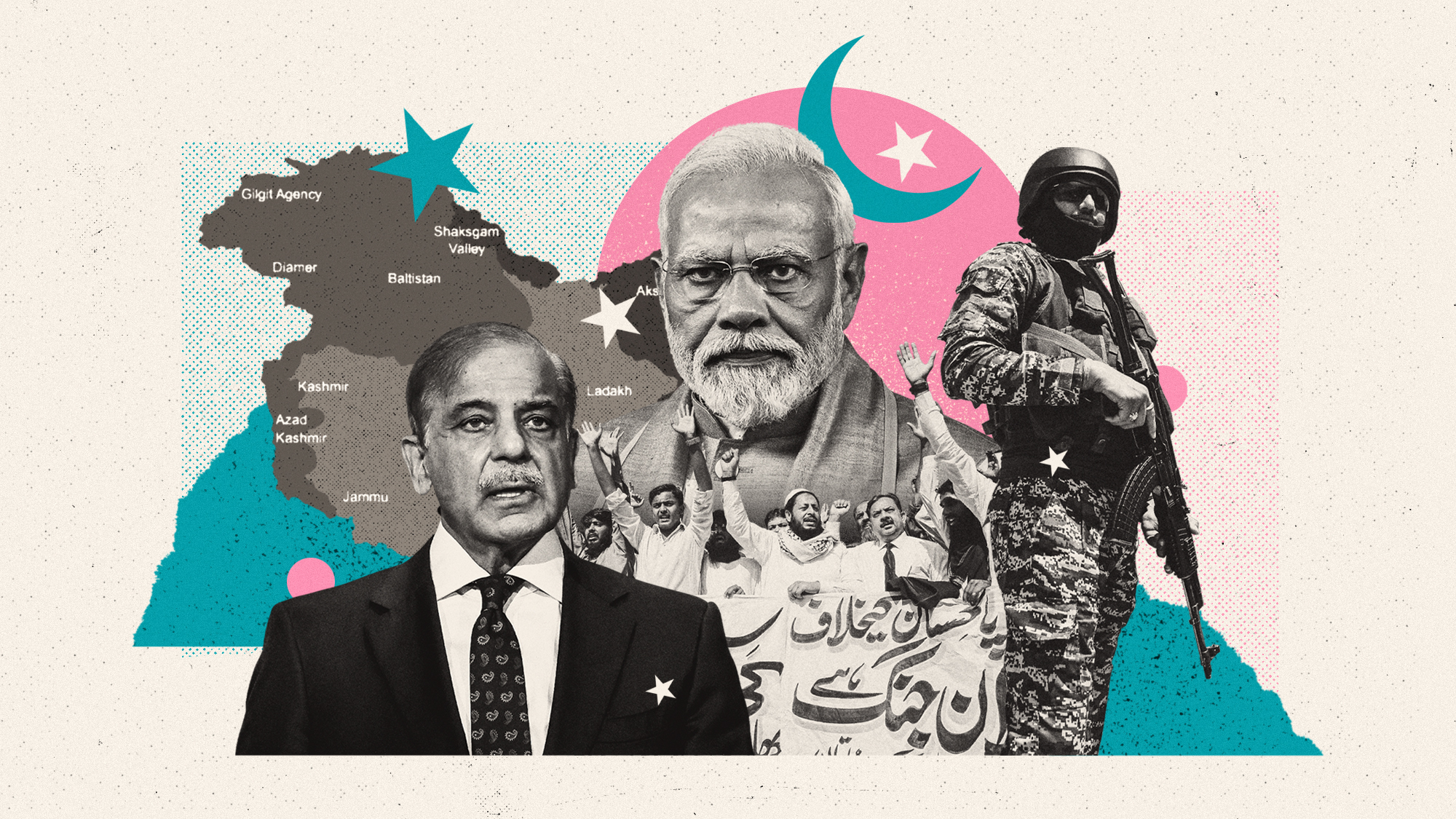 What happens if tensions between India and Pakistan boil over?
What happens if tensions between India and Pakistan boil over?TODAY'S BIG QUESTION As the two nuclear-armed neighbors rattle their sabers in the wake of a terrorist attack on the contested Kashmir region, experts worry that the worst might be yet to come
-
 Why Russia removed the Taliban's terrorist designation
Why Russia removed the Taliban's terrorist designationThe Explainer Russia had designated the Taliban as a terrorist group over 20 years ago
-
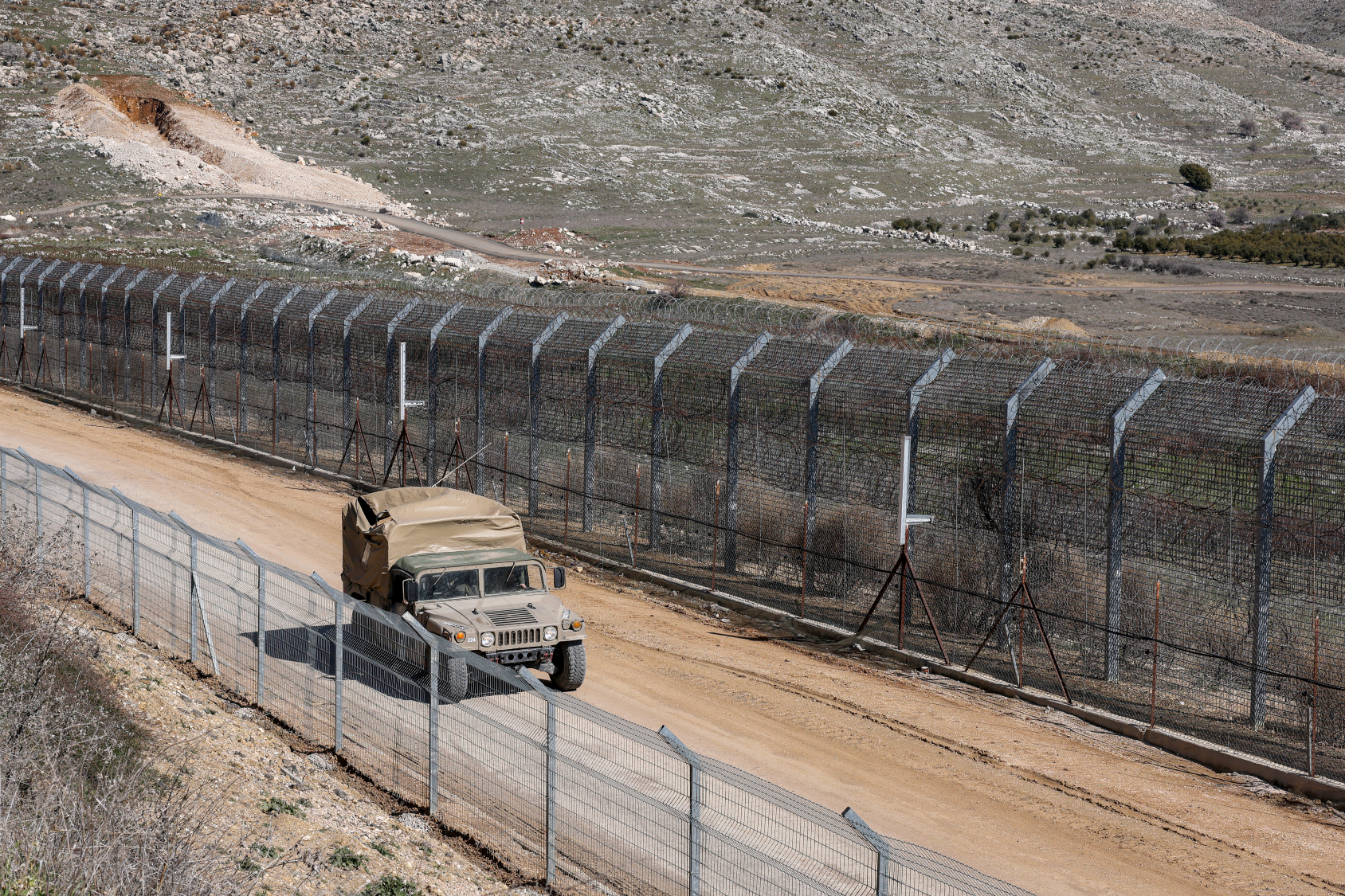 Inside the Israel-Turkey geopolitical dance across Syria
Inside the Israel-Turkey geopolitical dance across SyriaTHE EXPLAINER As Syria struggles in the wake of the Assad regime's collapse, its neighbors are carefully coordinating to avoid potential military confrontations
-
 'Like a sound from hell': Serbia and sonic weapons
'Like a sound from hell': Serbia and sonic weaponsThe Explainer Half a million people sign petition alleging Serbian police used an illegal 'sound cannon' to disrupt anti-government protests
-
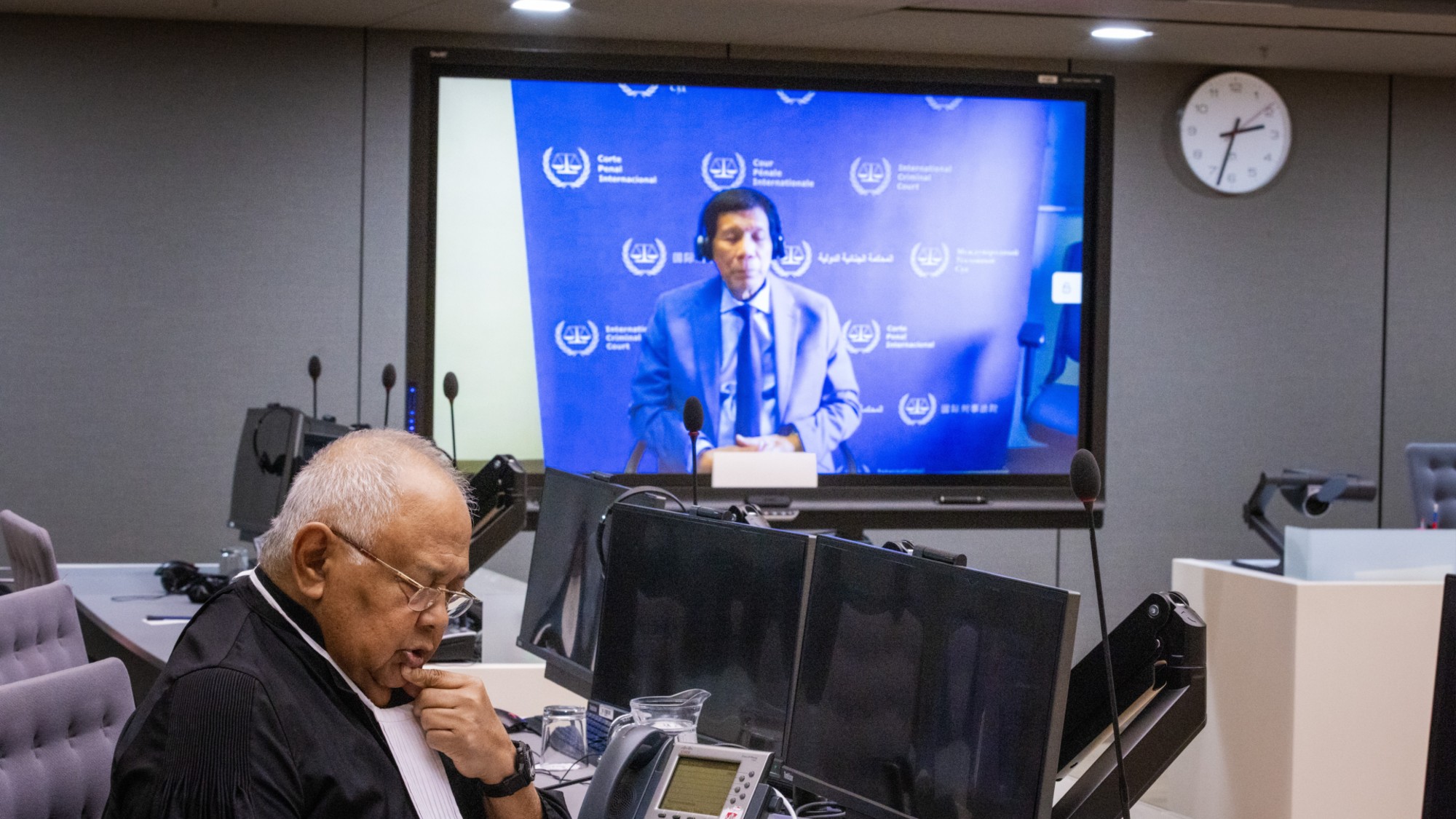 The arrest of the Philippines' former president leaves the country's drug war in disarray
The arrest of the Philippines' former president leaves the country's drug war in disarrayIn the Spotlight Rodrigo Duterte was arrested by the ICC earlier this month
-
 Ukrainian election: who could replace Zelenskyy?
Ukrainian election: who could replace Zelenskyy?The Explainer Donald Trump's 'dictator' jibe raises pressure on Ukraine to the polls while the country is under martial law
-
 Why Serbian protesters set off smoke bombs in parliament
Why Serbian protesters set off smoke bombs in parliamentTHE EXPLAINER Ongoing anti-corruption protests erupted into full view this week as Serbian protesters threw the country's legislature into chaos
-
 Who is the Hat Man? 'Shadow people' and sleep paralysis
Who is the Hat Man? 'Shadow people' and sleep paralysisIn Depth 'Sleep demons' have plagued our dreams throughout the centuries, but the explanation could be medical

